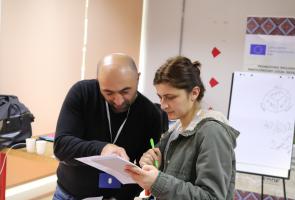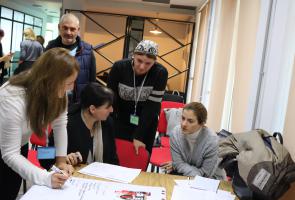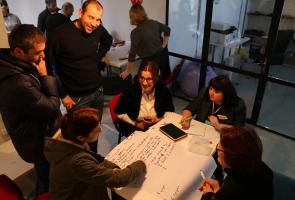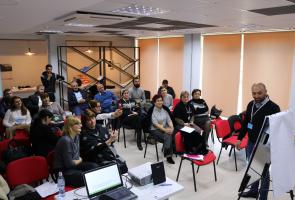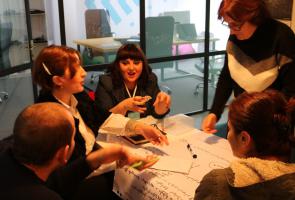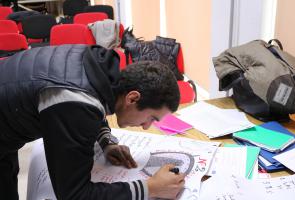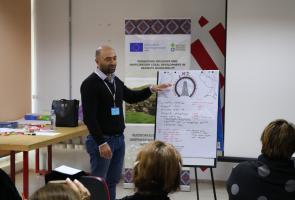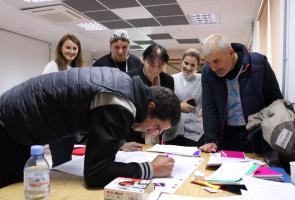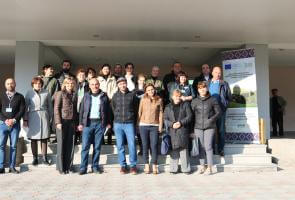News
Akhmeta residents learn the principles of community-led local development approach
29/11/19
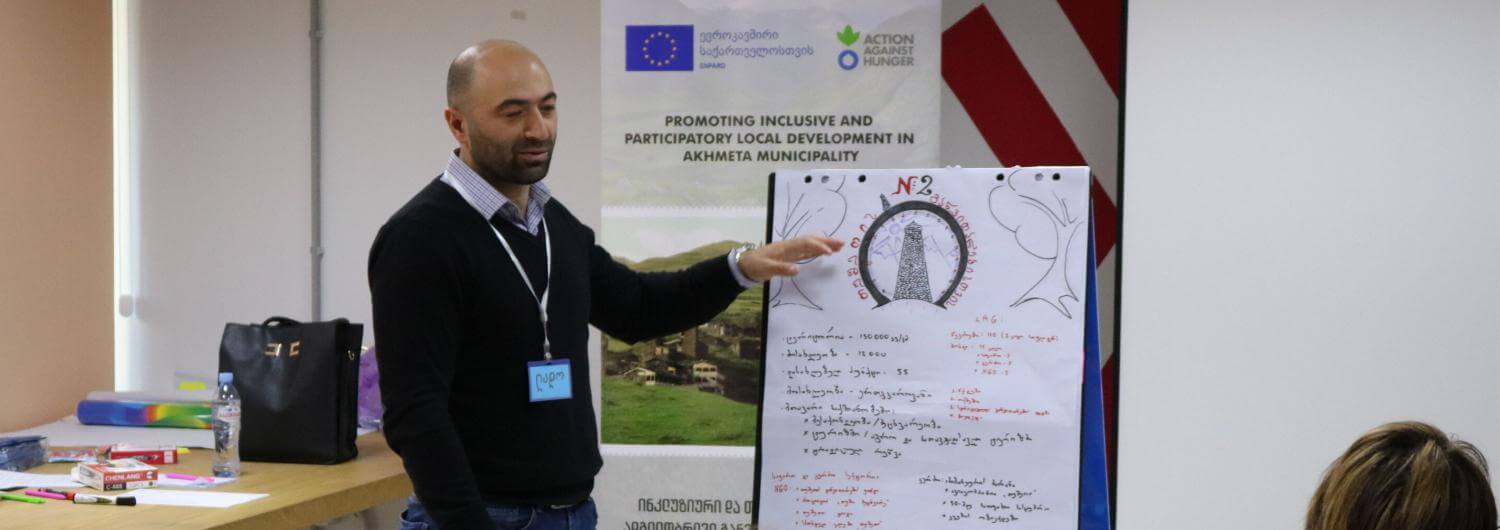
From 26th - 29th November 2019, more than 65 residents took part in two-day training sessions on the LEADER-CLLD (Community-Led Local Development) approach in Akhmeta municipality in the region of Kakheti. The training was organised within the framework of the EU-funded ENPARD project “Promoting inclusive and participatory local development in Akhmeta Municipality” and aimed at providing attendees with a thorough induction on the concept and principles of the LEADER-CLLD approach and how they might adapt this proven methodology to their own unique context.
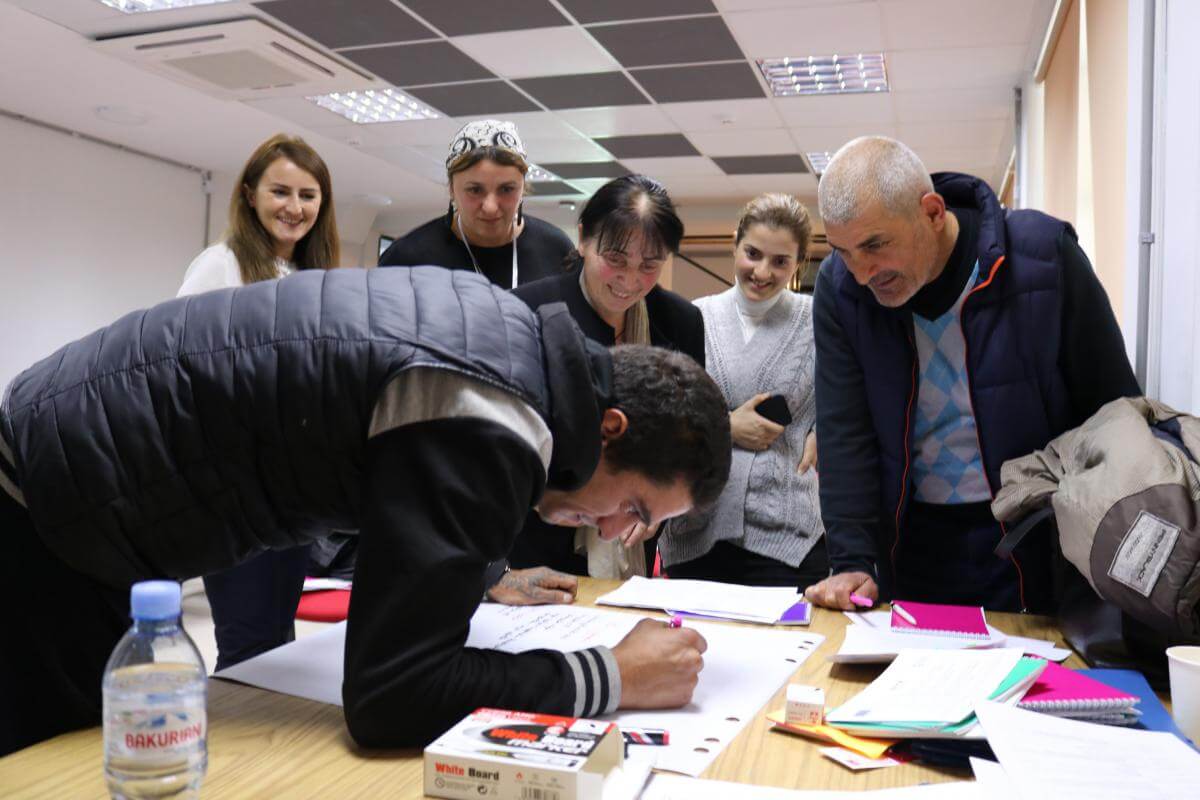
An international LEADER expert, Lina Gumbreviciene from Lithuania, provided the participants with information about the process of establishing a Local Action Group (LAG) and the governance model that they use, including developing a statute, the board structure and decision-making mechanisms. They also heard about the challenges in LAG development. During question-and-answer sessions attendees enquired and learned about the processes that LAGs use in Europe when conducting grant competitions and performing monitoring and evaluation of projects that they support.
Initially a little reserved, participants of varying ages and backgrounds came together to learn and share their ideas and experience through workshops and group activities. Seeing the successes of similar projects in communities and villages from as far afield as Ireland to Lithuania opened their eyes to the possibilities of what could be achieved through community-led cooperation, a little imagination, hard work, and some financial assistance.
The enthusiasm and boost in self-belief that could be observed was very encouraging. As Levan Garsevanidze, 23, a talented artist from Tusheti, who recently has been contributing his own money, time and talents to work with youngsters, said “I want to be part of positive change and I believe change can happen. There are not enough cultural and sport activities for youth. I want to know more about this approach, the team work and how to improve the situation and how to develop and help the community through participation”. Levan, who since childhood worked as a shepherd, has qualifications in graphic design and ceramics as well as being a self-taught tattoo artist, demonstrated his skills by designing posters and logos for the different groups during the training sessions.
There was also a good mix from both the public and private sectors in attendance, as well as from the diverse communities that make up Akhmeta Municipality. Esma Borchashvili, 46, an ethnic Kist woman who spent several years working as a support staff member in a kindergarten school in Sweden is uncertain how she will contribute but said “I am curious, and I hope to join the LAG if I can help”. While, David Abuladze, 31, a city hall administrator who is keen to join the LAG hoped these trainings would enable him to have “an effective and positive impact on the municipality”.
The project aims to promote the voices of community members in local development planning and project decision-making to improve the quality of life and economic conditions in Akhmeta Municipality. Like many rural municipalities in Georgia, there is an acute need to support socio-economic development as many people are leaving the region to find work in Tbilisi or abroad. Keti Dzarghuashvili, 20, who is studying tourism explained in English that she came to the LAG training because “too many young people are leaving the region and I want to encourage more young people to stay”. Attending the training were several people that have already embarked upon initiatives that they hope will bring positive change to their communities. Nona Mtiulishvili, 33, recently co-founded an initiative, “Youth for Rural Development”, and is “trying to do something positive in her village through an awareness-raising campaign on environmental friendliness using local materials”. Speaking about the training she said, “I enjoy the group activities, sharing experiences, and I am dedicated to improving the situation in any way I can”.
The project is funded by the European Union as part of the third cycle of the ENPARD programme and is implemented by Action Against Hunger, Kakheti Regional Development Foundation and Tusheti Development Fund.
The European Union is supporting agriculture and rural development in Georgia through its ENPARD programme. The support is grounded in the best European practices in the field and involves improving livelihoods of rural communities through creating economic opportunities and promoting local public-private partnerships. Implemented since 2013, the main goal of ENPARD is to reduce rural poverty in Georgia. For more information, please visit: www.enpard.ge
